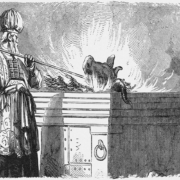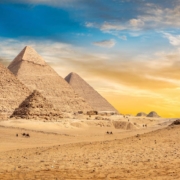What Is the Good News of Yeshua? (Part 15)
The God of Israel requires blood for sin because “the life of the flesh is in the blood” (17:11) and “the wages of the sin is death” (Romans 6:23). Inasmuch as sin, disobedience, and violation of God’s commands incur a deathly deficit, the God of Atonement has assessed that that debt can only be paid with life. This is why “it is the blood which makes atonement for the soul” (Leviticus 17:11). Yet in order for sinners to be saved from paying with their own lives, the merciful, covenantal Creator provided a remedy whereby the blood from a sinless life could be accepted as payment for another’s sins. And since, among mere men, “there is none righteous, not even one” (Romans 3:10), God allowed for the substitution of blameless, spiritless animals to be that surrogate life. But because of the nature of those “same sacrifices that they continually offer” (Hebrews 10:1), such work could only ever serve as a reminder (Hebrews 10:3) that the problem of sin cannot be solved… not as long as the mediator—who has sin of his own—must use “the blood of others” to make atonement (Hebrews 9:25). For no matter how many innocent animals are slaughtered, “it is impossible for the blood of bulls and goats to take away sins” forever (Hebrews 10:4). And yet, this is not even the biggest problem where it comes to sin… Read more












